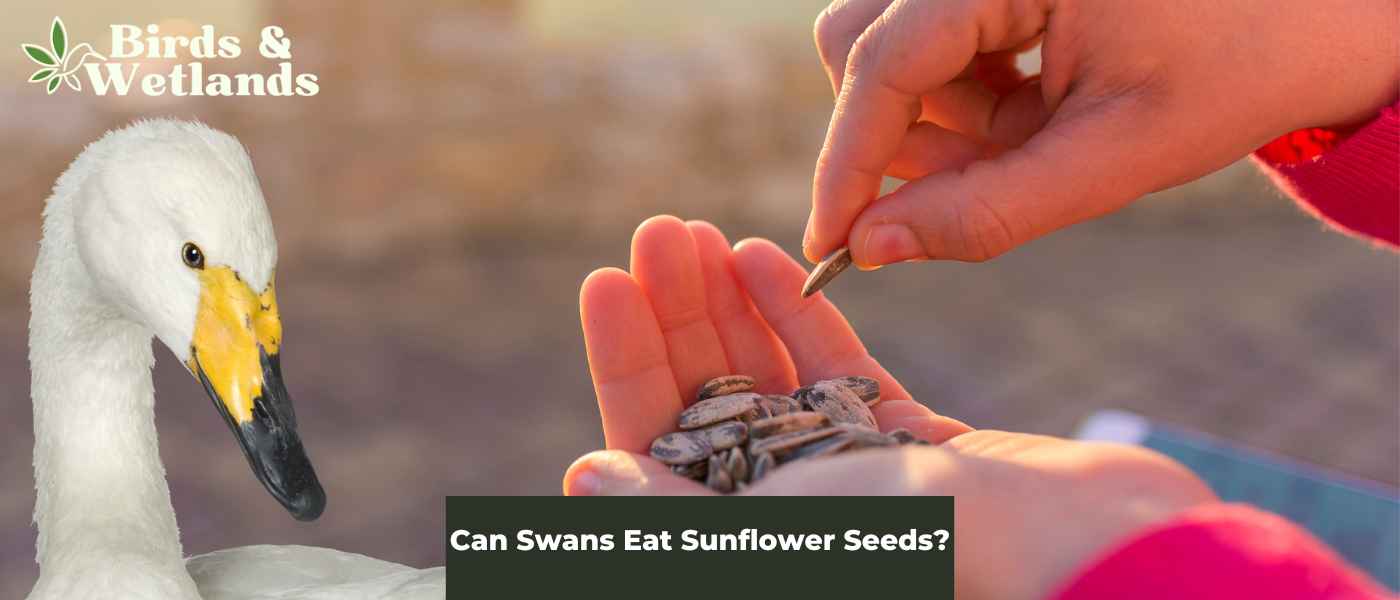Swans are beautiful and majestic birds that are commonly found in ponds and lakes, where people love to feed them. While their primary diet consists of aquatic vegetation, many people also offer them human food as a treat.
Sunflower seeds, in particular, are a popular snack that people often offer to swans. But is it safe and healthy for swans to eat sunflower seeds? Let’s find out.
Swans and ducks can eat sunflower seeds as a supplemental food source. Sunflower seeds contain beneficial nutrients such as healthy fats, protein, vitamins, and minerals. However, sunflower seeds should not make up a significant portion of a swan’s diet. When offering sunflower seeds to swans, it is preferable to provide hulled seeds, as shells can be challenging for them to digest.
Key Takeaways on Feeding Swans
- Swans can eat sunflower seeds as a supplemental food source, providing beneficial nutrients such as healthy fats, protein, vitamins, and minerals.
- Sunflower seeds should not make up a significant portion of a swan’s diet, as their primary diet should consist of aquatic plants, seeds, and small aquatic animals.
- When offering sunflower seeds to swans, provide hulled seeds, since shells can be challenging for them to digest.
- A balanced and varied diet is crucial for maintaining the overall health and well-being of swans.
- Sunflower seeds are a great source of protein, fats, vitamins, and minerals, which help support swans’ overall health and well-being.
What are the health benefits of giving swans sunflower seeds?
Swans are beautiful birds with long necks. They are not seed-eaters like many backyard birds. But they do eat sunflower seeds when no other food is available.
One of the main health benefits of giving swans sunflower seeds is that they provide a natural source of protein. Sunflower seeds are rich in essential amino acids, which are the building blocks of protein. Swans need protein to maintain healthy muscles, feathers, and skin.
In addition, sunflower seeds also provide a good source of fats, essential for maintaining a healthy heart and overall well-being.
Another benefit of giving swans sunflower seeds is that they provide a natural source of vitamins and minerals. Sunflower seeds are a good source of vitamin E, an important antioxidant that helps protect the body against free radicals.
They are also a good source of other essential vitamins and minerals, such as magnesium, potassium, and zinc. These nutrients help to support the immune system and promote overall health and wellness.
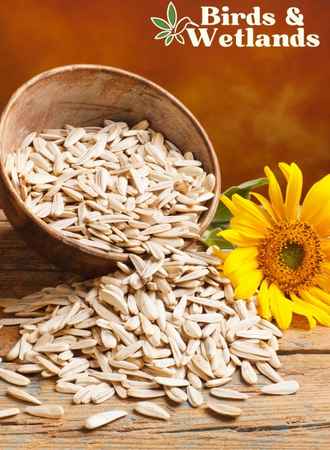
Can baby swans eat sunflower seeds?
Baby swans, also known as cygnets, can eat sunflower seeds as part of their diet. However, it is important to note that sunflower seeds should not be the main food source for baby swans as they do not provide all the necessary nutrients for proper growth and development.
Sunflower seeds are high in fat protein, which is good for their health. However, sunflower seeds lack other nutrients crucial for their developing bodies. Additionally, even small pieces of shells of the seeds can be a choking hazard for young swans and may be difficult for them to digest because they are still developing their digestive tract.
Healthy alternatives for young swans include leafy greens, small aquatic invertebrates, and specially formulated swan feed. These options provide the necessary balance of protein, carbohydrates, and nutrients for proper growth and development.
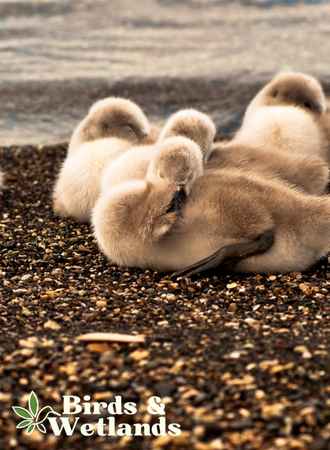
Should you feed swans sunflower seeds?
Swans are opportunistic animals, meaning they will eat a wide variety of foods depending on what is available to them. This behavior is especially true for swans living in city parks, where they have learned to adapt to the food humans provide. These birds are voracious eaters that usually eat food equivalent to about 25% of their body weight.
For example, a swan living in a city park might eat bread crumbs, crackers, or even hotdogs thrown at them by visitors.
While swans may eat sunflower seeds, it is important to note that they are not part of their natural diet. Feeding swans sunflower seeds can lead to health problems, such as obesity and malnutrition, as they do not provide the necessary nutrients that swans require.
Additionally, sunflower seeds are small and can easily become lodged in a swan’s windpipe, which can cause injury or even death.
It is best to stick to offering swans natural food sources such as aquatic plants, worms and insects.
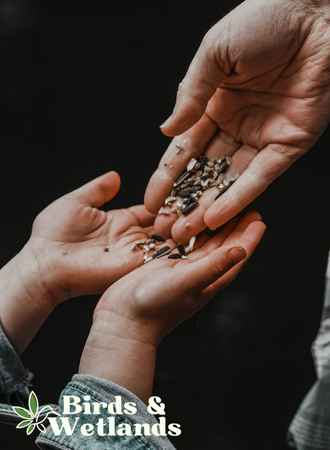
How often can you feed swans sunflower seeds?
If you plan on giving swans sunflower seeds, give them small amounts first and see if they eat the seeds. Sunflower seeds may be an acquired taste so not all swans take into liking them.
If they do eat, then you can feed them sunflower seeds, once or twice a week. However, if they don’t eat the sunflower seeds, then don’t give the seeds to them again and choose other foods instead.
Does feeding swans sunflower seeds lead to angel wing?
Feeding sunflower seeds to swans doesn’t lead to a condition called angel wings.
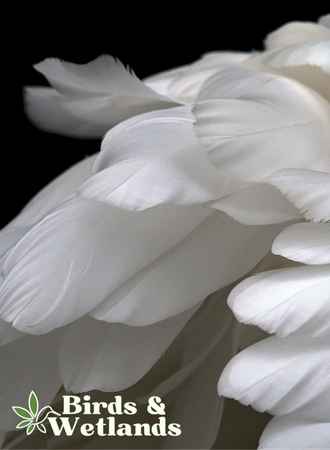
What are better food alternatives to sunflower seeds when feeding swans?
If your local swans don’t like eating sunflower seeds, don’t worry you can still feed them other food. For instance, swans love leafy greens such as iceberg lettuce. Other vegetables you can feed them include carrots, kale, and cabbage. Avoid feeding these birds spinach due to its oxalic content.
These birds also love eating corn and other grains, grapes and other fruits and peas. You can also give them small quantities of mealworms and frozen crickets.
You can also give swans duck feed or waterfowl you can purchase from local pet stores.
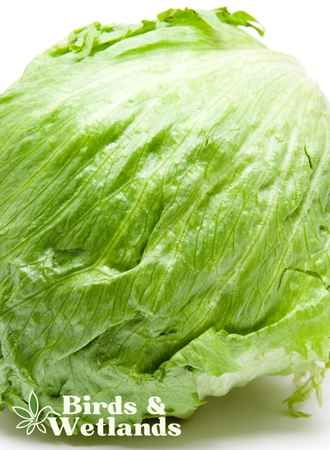
Related Questions on Feeding Ducks, Swans and Geese
What happens if you feed ducks, swans and geese bread?
Most people enjoy feeding waterfowl and other birds food at their local pond. In most cases, this gesture is considered kind and for the benefit of the birds. However, what most people don’t know is that foods affect birds in many different ways.
One of the most controversial topic is whether or not to feed bread to birds. So what exactly happens if you feed swans, ducks and geese bread?
Eating bread and other junk food is bad for geese, ducks and all wild birds for several reasons. The most important reason people should stop giving bread to swans, or any bird, is due to nutritional considerations.
Fresh bread is not a natural part of a swan’s diet and can cause nutritional deficiencies. Swans are primarily herbivores, and their diet consists of aquatic plants, small insects, crustaceans, and small fish.
Feeding them bread can disrupt their natural feeding habits and lead to a lack of essential nutrients, including protein, vitamins, and minerals.
Bread is can contain refined flour and is usually high in carbohydrates and low in fiber, which can cause digestive problems for swans. And since bread is readily available, giving swans bread can lead to overeating in the part of the swan.
Eating too much bread can lead to digestive issues such as diarrhea, bloating, and constipation. These problems can be especially severe for young swans, who are still developing their digestive systems. Some people may even feed these poor birds bread with chocolate spread, which is bad for them.
Additionally, bread can lead to an overpopulation of young and adult swans in a particular area, as it can be an easy and abundant food source. Constantly giving a swan food affects its ability to find food.
Lastly, feeding bread to swans can also negatively affect their environment. The excess bread and uneaten food can pollute the shallow water and attract unwanted pests such as rats and seagulls, which can compete with swans for food.
Additionally, the accumulation of bread in the water can lead to an overgrowth of algae, which can harm the local ecosystem and the health of the swans.
The only time bread is good for these birds is during winter. The need more energy sources when food is scarce.
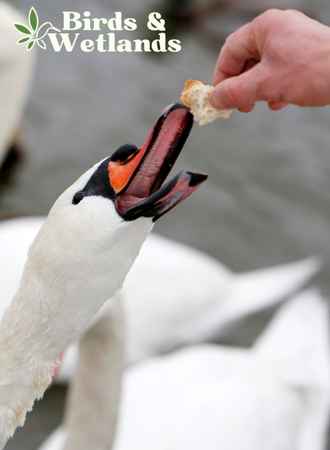
Other Foods for Swans
| Oats | The Amazing Benefits of Swans Eating Oats |
| Lettuce | Why Swans Can’t Resist Lettuce – The Untold Story |
| Bread | The Hidden Dangers of Feeding Swans Bread |
| Fish | Swans and Fish: What No One Tells You |
Best Waterfowl Feed
Delightful Feeding Experience
Transform your backyard into a scenic waterfowl habitat and enjoy an interactive feeding experience with Natural Waterscapes Waterfowl Floating Food.

Pros
- Nutritious Food: Natural Waterscapes Waterfowl Floating Food is specifically designed to provide essential nutrients to waterfowl, including swans, geese, and ducks, helping them maintain a healthy diet.
- Convenient: The food comes in resealable packaging, making it easy to store and use as needed. It is also easy to handle and transport.
- Floating Formula: The floating formula of the food allows it to remain on the surface of the water, making it easier for waterfowl to eat and minimizing the risk of water contamination.
- Attracts Waterfowl: The food is formulated to attract various waterfowl species, including swans, geese, and ducks, to your pond, lake, or other water body, providing an opportunity to observe and enjoy these beautiful creatures.
- Environmentally Friendly: Natural Waterscapes Waterfowl Floating Food is made with environmentally friendly ingredients and does not contain any harmful preservatives, making it safe for both waterfowl and the environment.
Cons
- Shelf Life: The food’s shelf life may be limited compared to other types of waterfowl food due to its natural ingredients and lack of preservatives. This means you may need to use it up quickly after opening the package to prevent it from going bad.

